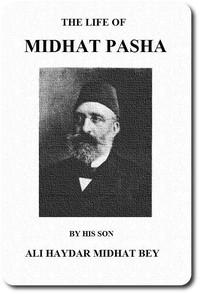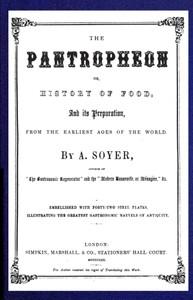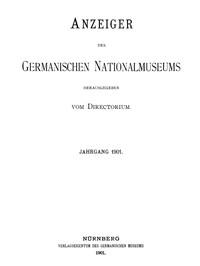Read this ebook for free! No credit card needed, absolutely nothing to pay.
Words: 56406 in 20 pages
This is an ebook sharing website. You can read the uploaded ebooks for free here. No credit cards needed, nothing to pay. If you want to own a digital copy of the ebook, or want to read offline with your favorite ebook-reader, then you can choose to buy and download the ebook.
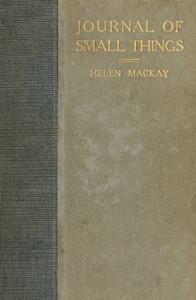

: Journal of Small Things by Mackay Helen Courtney W L William Leonard Author Of Introduction Etc - World War 1914-1918 Hospitals
I Maurice Maeterlinck: a study in Mysticism 3
II August Strindberg: a study in Eccentricity 71
THE MYSTICISM OF MAURICE MAETERLINCK
Under the terrific atmospheric pressure that has been torturing the civilization of the entire world since the outbreak of the greatest of wars, contemporary literature of the major cast appears to have gone into decline. Even the comparatively few writers recognized as possessing talents of the first magnitude have given way to that pressure and have shrunk to minor size, so that it may be seriously questioned, to say the least, whether during the past forty months or so a single literary work of outstanding and sustained grandeur has been achieved anywhere. That the effect of the universal embattlement upon the art of letters should be, in the main, extremely depressing, is quite natural; but the conspicuous loss of breadth and poise in writers of the first order seems less in accordance with necessity,--at least one might expect a very superior author to rise above that necessity. In any case it is very surprising that it should be a Belgian whose literary personality is almost unique in having remained exempt from the general abridgment of spiritual stature.
It is true that Maurice Maeterlinck, the most eminent literary figure in his sadly stricken country and of unsurpassed standing among the contemporary masters of French letters, has, since the great catastrophe, won no new laurels as a dramatist; and that in the other field cultivated by him, that of the essay, his productiveness has been anything but prolific. But in his case one is inclined to interpret reticence as an eloquent proof of a singularly heroic firmness of character at a time when on both sides of the great divide which now separates the peoples, the cosmopolitan trend of human advance has come to a temporary halt, and the nations have relapsed from their laboriously attained degree of world-citizenship into the homelier, but more immediately virtuous, state of traditional patriotism.
"The Wrack of the Storm," 1916.
He refuses to acquiesce in the lenient discrimination between the guilty Government of Germany and her innocent population: "It is not true that in this gigantic crime there are innocent and guilty, or degrees of guilt. They stand on one level, all those who have taken part in it.... It is, very simply, the German, from one end of his country to the other, who stands revealed as a beast of prey which the firm will of our planet finally repudiates. We have here no wretched slaves dragged along by a tyrant king who alone is responsible. Nations have the government which they deserve, or rather, the government which they have is truly no more than the magnified and public projection of the private morality and mentality of the nation.... No nation can be deceived that does not wish to be deceived; and it is not intelligence that Germany lacks.... No nation permits herself to be coerced to the one crime that man cannot pardon. It is of her own accord that she hastens towards it; her chief has no need to persuade, it is she who urges him on."
"The Wrack of the Storm," pp. 16-18.
Such a condemnatory tirade against the despoilers of his fair homeland was normally to be expected from a man of Maeterlinck's depth of feeling. The unexpected thing that happened not long after was that the impulsive promptings of justice and patriotism put themselves into harmony with the guiding principles of his entire moral evolution. The integrity of his philosophy of life, the sterling honesty of his teachings, were thus loyally sealed with the very blood of his heart.--"Before closing this book," he says in the Epilogue, "I wish to weigh for the last time in my conscience the words of hatred and malediction which it has made me speak in spite of myself." And then, true prophet that he is, he speaks forth as a voice from the future, admonishing men to prepare for the time when the war is over. What saner advice could at this critical time be given the stay-at-homes than that they should follow the example of the men who return from the trenches? "They detest the enemy," says he, "but they do not hate the man. They recognize in him a brother in misfortune who, like themselves, is submitting to duties and laws which, like themselves, he too believes lofty and necessary." On the other hand, too, not many have sensed as deeply as has Maeterlinck the grandeur to which humanity has risen through the immeasurable pathos of the war. "Setting aside the unpardonable aggression and the inexpiable violation of the treaties, this war, despite its insanity, has come near to being a bloody but magnificent proof of greatness, heroism, and the spirit of sacrifice." And from his profound anguish over the fate of his beloved Belgium this consolation is wrung: "If it be true, as I believe, that humanity is worth just as much as the sum total of latent heroism which it contains, then we may declare that humanity was never stronger nor more exemplary than now and that it is at this moment reaching one of its highest points and capable of braving everything and hoping everything. And it is for this reason that, despite our present sadness, we are entitled to congratulate ourselves and to rejoice." Altogether, Maeterlinck's thoughts and actions throughout this yet unfinished mighty fate-drama of history challenge the highest respect for the clarity of his intellect and the profoundness of his humanity.
The appalling disaster that has befallen the Belgian people is sure to stamp their national character with indelible marks; so that it is safe to predict that never again will the type of civilization which before the war reigned in the basins of the Meuse and the Scheldt re?stablish itself in its full peculiarity and distinctiveness which was the result of a unique coagency of Germanic and Romanic ingredients of culture. Yet in the amalgam of the two heterogeneous elements a certain competitive antithesis had survived, and manifested itself, in the individual as in the national life at large, in a number of unreconciled temperamental contrasts, and in the fundamental unlikeness exhibited in the material and the spiritual activities. Witness the contrast between the bustling aggressiveness in the province of practical affairs and the metaphysical drift of modern Flemish art. To any one familiar with the visible materialism of the population in its external mode of living it may have seemed strange to notice how sedulously a numerous set among the younger artists of the land were facing away from their concrete environment, as though to their over-sensitive nervous system it were irremediably offensive. The vigorous solidity of Constantin Meunier, the great plastic interpreter of the "Black Country" of Belgium, found but few wholehearted imitators among the sculptors, while among the painters that robust terrestrialism of which the work of a Rubens or Teniers and their countless disciples was the artistic upshot, was almost totally relinquished, and linear firmness and colorful vitality yielded the day to pallid, discarnately decorative artistry even, in a measure, in the "applied art" products of a Henri van de Velde.
In a paper read by title before the Modern Language Association of America at Yale University, December 29, 1917.
If we take into account this composite attitude of the Flemish mind we shall be less surprised at the remarkable evolution of a poet-philosopher whose creations seem at first blush to bear no resemblance to the outward complexion of his own age; who seems as far removed temperamentally from his locality and time as were his lineal spiritual ancestors: the Dutchman Ruysbroeck, the Scandinavian Swedenborg, the German Novalis, and the American Emerson--and who in the zenith of his career stands forth as an ardent advocate of practical action while at the same time a firm believer in the transcendental.
Free books android app tbrJar TBR JAR Read Free books online gutenberg
More posts by @FreeBooks

: The Livestock Producer and Armour by Armour And Company Publisher - Animal industry United States; Packing-house products
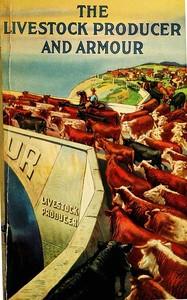

: The life of Midhat Pasha; a record of his services political reforms banishment and judicial murder by Ali Haydar Mithat - Midhat Paşa 1822-1884; Statesmen Turkey Biography; Turkey History 19th century
